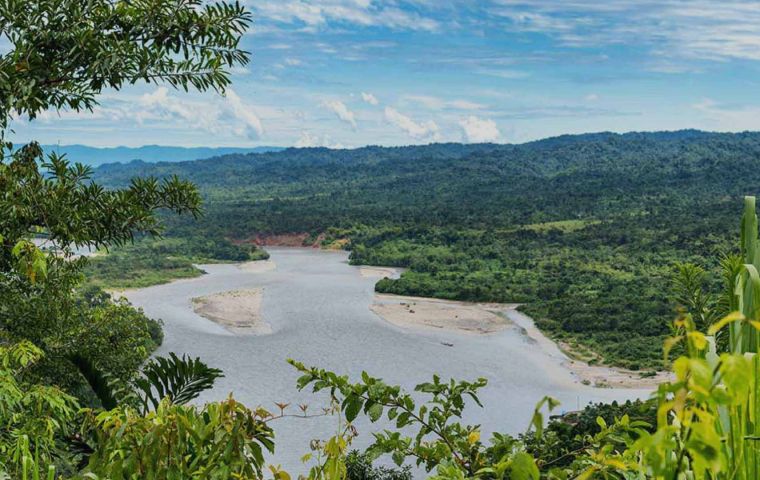MercoPress. South Atlantic News Agency
Peru to allocate green debt swap to tropical forest protection in Amazon
 It was Peru's third swap after similar deals in 2002 and 2008
It was Peru's third swap after similar deals in 2002 and 2008 The Peruvian administration of President Dina Boluarte pledged to use the proceeds from a US$ 20 million debt swap with the United States for climate action in the Amazon to finance a tropical forest protection fund over the next 13 years, it was reported Wednesday in Lima. It is the third debt-for-nature swap between the two governments.
Peru's agreement with the United States will help restore and protect some of the South American country's territories in the Amazon rainforest, in exchange for a US$20 million cut in its debt.
The surplus from this deal will be allocated to the conservation of protected areas, to improve the management of natural resources, and to support sustainable livelihoods in communities in the Peruvian rainforest thanks to contributions worth US$ 15 million from the US government under the Rainforest Conservation Act and a joint donation of US$ 3 million from four NGOs.
The first two swaps were in 2002 and 2008. They generated about US$ 36 million for the restoration, conservation, management, and sustainable use of tropical forests.
Also signing swap agreements with the White House are Bangladesh, Belize, Botswana, Brazil, Colombia, Costa Rica, El Salvador, Guatemala, Indonesia, Jamaica, Panama, Paraguay, and the Philippines.
Meanwhile, Uruguay's Economy Minister Azucena Arbeleche said during her appearance at the “European Union and Latin America and the Caribbean: a joint agenda for development” at the CAF (Development Bank of Latin America) conference in Madrid that “we are penalized in some way because we no longer have access to certain financing conditions or because we no longer have access to certain market conditions in the sales of our products.”
“And hand in hand with that Uruguay's position is that we should work with economic incentives, financial incentives, or trade incentives that have to do with the provision of each of the countries to this global public good that is the environment. In other words, the country that contributes most to the care of the environment, to this global public good, the environment, should receive a prize and not a punishment,” she added.
She also pointed out that “last year Uruguay issued a bond whose interest rate is indexed to environmental indicators and there is not only a penalty, as in the case of the bond already issued by Chile if environmental goals are not met, but the important thing is that there is a prize, an incentive in the event that Uruguay exceeds certain environmental goals that come from the Paris Agreement.”
“Uruguay continues working with multilateral [bodies], particularly with the World Bank so that there are also loans whose interest rate is lower in the event that certain goals are met,” she added.
”Last but not least, it seems to us that the European Union (EU) could collaborate with the countries of Latin America and the Caribbean“ by rewarding ”trade with those countries that contribute more to the environmental issue.”




Top Comments
Disclaimer & comment rulesCommenting for this story is now closed.
If you have a Facebook account, become a fan and comment on our Facebook Page!